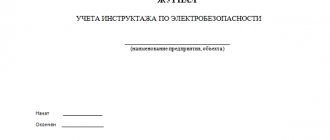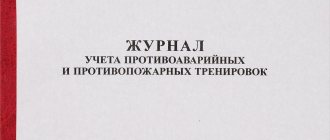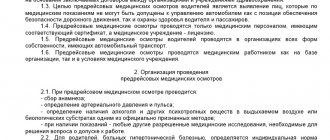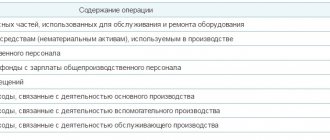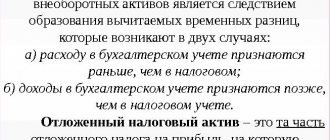Other taxes
02/05/2018 Print
When concluding an agency agreement, a company, on behalf and at the expense of its partner-principal, can carry out various business transactions, and the company can act both on its own behalf and on behalf of the business partner. Let's talk about the nuances of accounting for such transactions.
Regardless of whether the agent acts on his own behalf or on behalf of the principal, he makes transactions on behalf of the principal. The agent does not own the ownership of the goods (work, service) being sold. A mandatory condition of any agency agreement is its remuneration, that is, the agent receives remuneration for his services.
On a note
The agent organizes and establishes in the accounting policy the procedure for reflecting transactions and analytics for accounting for agency fees, settlements with the principal and his counterparties, and document flow for these transactions.
Thus, no matter what agency transactions we are talking about, the agent always has income, expenses and objects of taxation only in relation to the amounts of the agent’s remuneration. Depending on whether the agency activity for the agent is permanent or one-time, it is possible to use both account 62 “Settlements with buyers and customers” (the principal for the agent is the customer of services) and account 76 “Settlements with various debtors and creditors." Given the variability, please note that the accounting treatment must be fixed in the accounting policy. If accounting is planned to be carried out using account 76, then the working chart of accounts must provide for appropriate levels of synthetic and analytical accounting.
Example 1. Remuneration directly from the principal
Let's consider an example: an agent receives payment of remuneration directly from the principal on the terms of 50% advance. The following entries are made in accounting:
Debit 51 Credit 62 (76
)
1,000 rubles – an advance on the agent’s fee was received;
Debit 62 (76) Credit 68.2
152.54 rubles – VAT is charged on the advance payment;
Debit 62 (76) Credit 90
2000 rubles – the agent’s income is recognized at the moment the principal accepts the agent’s report;
Debit 90 Credit 20
800 rubles – if there are direct expenses of the transaction agent, they are recognized in the cost price;
Debit 90 Credit 68.2
305.09 rubles – VAT is charged on the entire amount of the agent’s remuneration;
Debit 68.2 Credit 62 (76)
152.54 rubles – VAT accrued on the advance is accepted for deduction;
Debit 51 Credit 62 (76)
1000 rubles - the agent’s services are paid for by the principal.
In the absence of an advance payment, the agent's accounting is limited to entries 3, 4, 5 and 7 (for the entire amount of the remuneration). If the agent uses the simplified tax system, we exclude VAT transactions (2, 5 and 6).
Example 2 Deduction from remuneration
Now let’s consider the procedure for recording transactions when the agent withholds remuneration from the amounts received from the buyer of goods (services, works) of the principal:
Debit 62 (76) Credit 90
2000 rubles – the agent’s income is recognized at the moment the principal accepts the agent’s report;
Debit 90 Credit 20
800 rubles – if there are direct expenses of the transaction agent, they are recognized in the cost price;
Debit 90 Credit 68.2
305.08 rubles – VAT is charged on the entire amount of the agent’s remuneration;
Debit 76 Principal Credit 62 (76) Principal
2000 rubles - the agent’s remuneration is withheld from funds received from buyers to the principal. Accordingly, if the agent uses the simplified tax system, then it is necessary to exclude the posting for VAT calculation.
Agent's report
Thus, in an agent’s accounting, the main document on the basis of which income is reflected and tax bases for VAT and income tax or simplified taxation are formed is the agent’s report. The report is provided within the time limits established by the contract. The report is considered accepted by the principal if, within the period established in the contract, the latter has not received any objections to the data reflected in the document. Since the deadline for submitting the agent’s report is not established by law, and 30 days are allotted for the principal’s objections under the Civil Code of the Russian Federation, it is advisable to establish by agreement the frequency or deadline for the submission of agency reports, as well as a reasonable period for its consideration by the principal.
Current
The terms of the contract may provide for the participation of an agent in settlements between the principal and buyers or suppliers. The cash flow in this case does not generate income or expenses for the agent, but transits through account 76 “Settlements with various debtors and creditors.”
The form of such a report is not fixed by law, but it is subject to general requirements for mandatory details for primary accounting documents. To avoid disagreements at the stage of accepting the agent’s services, it is better to agree on the reporting form as an annex to the contract. According to existing business practices, the fact that the agent provides services is additionally documented in an act of provision of services, and this act can also be made part of the report. The condition for signing the act or its combination with the report must be fixed in the contract.
How to calculate VAT on intermediary agreements
Intermediary transactions include:
- under a commission agreement;
- under a contract of agency;
- under an agency agreement.
The procedure for calculating VAT on intermediary agreements depends on:
- who is the participant in the intermediary agreement - the customer (principal, principal or principal) or the intermediary (commission agent, agent or attorney);
- what order the intermediary performs for the customer - sells or buys goods (work, services).
In addition, a special procedure for calculating VAT must be applied:
- upon receipt of advances under intermediary agreements related to the sale of goods;
— when selling goods of foreign organizations that are not tax registered in Russia.
Selling goods through an intermediary
An intermediary agreement related to the sale of goods (works, services) may provide for two options:
— the intermediary participates in the settlements (i.e., the buyer pays the intermediary, and the intermediary transfers the proceeds to the customer minus the intermediary fee);
— the intermediary does not participate in settlements (the buyer pays directly with the customer, and the customer transfers the intermediary fee to the intermediary’s account).
In any settlement option, the intermediary - VAT payer must charge tax on the amount of his remuneration and any other income (for example, additional benefits) received during the execution of the intermediary agreement. This is stated in paragraph 1 of Article 156 of the Tax Code of the Russian Federation. The exception is remuneration received for intermediary services for the sale of goods (work, services) specified in paragraph 1, subparagraphs 1 and 8 of paragraph 2 and subparagraph 6 of paragraph 3 of Article 149 of the Tax Code of the Russian Federation. Among them are some medical goods, funeral services, and folk arts and crafts. When selling these goods (works, services), neither their owners nor intermediaries should pay VAT. This procedure is provided for in paragraph 2 of Article 156 of the Tax Code of the Russian Federation.
Intermediary fee
Intermediary fees and other income received during the execution of an intermediary agreement (for example, additional benefits) are subject to VAT at a rate of 18 percent. This follows from the provisions of paragraph 3 of Article 164 of the Tax Code of the Russian Federation and letter of the Ministry of Finance of Russia dated May 12, 2011 No. 03-07-11/122.
Situation: at what rate should the intermediary pay VAT on the remuneration received during the execution of the contract? The intermediary sells goods subject to VAT at a rate of 10 percent.
Services provided on the basis of intermediary agreements are subject to VAT at a rate of 18 percent (clause 3 of Article 164 and Article 156 of the Tax Code of the Russian Federation).
At the same time, the Tax Code of the Russian Federation does not contain any exceptions that would provide for the application of a 10 percent rate for intermediary transactions. Therefore, there is no connection between the rate at which goods sold by a commission agent (attorney, agent) are taxed and the rate used to calculate VAT for the sale of intermediary services (clause 3 of Article 164 of the Tax Code of the Russian Federation). The Russian Ministry of Finance adheres to the same position (see, for example, letter dated March 21, 2006 No. 03-04-07/04).
An example of reflecting in accounting transactions for calculating VAT on intermediary remuneration. Transactions with an intermediary
ZAO Alfa (committee), under a commission agreement, instructed LLC Torgovaya (commission agent) to sell a batch of milk powder (i.e., 10,000 bags). The selling price of one package (excluding VAT) is 30 rubles/package. Powdered milk (except skim milk) is subject to VAT at a rate of 10 percent (List approved by Decree of the Government of the Russian Federation of December 31, 2004 No. 908).
According to the terms of the agreement, the intermediary's commission (excluding VAT) is 15 percent of the transaction amount (excluding VAT). The intermediary is not involved in the settlements.
Hermes sold the entire batch of goods received on commission at the selling price established by the contract. The amount of commission (excluding VAT) was 45,000 rubles. (30 RUR/package × 10,000 packages × 15%). Despite the fact that the subject of the commission agreement is a product subject to VAT at a rate of 10 percent, the intermediary's remuneration is subject to VAT at a rate of 18 percent. Therefore, the amount of VAT that Hermes presented to Alpha as part of the commission amounted to 8,100 rubles. (RUB 45,000 × 18%). The total amount of commission including VAT was RUB 53,100. (RUB 45,000 + RUB 8,100).
The Hermes accountant made the following entries in the accounting (regarding commission): Debit 76 Credit 90-1 – 53,100 rubles. – commission accrued;
Debit 90-3 Credit 68 subaccount “VAT calculations” – 8100 rubles. – VAT is charged for payment to the budget on the amount of commission;
Debit 51 Credit 76 – 53,100 rub. – money was received from the principal in payment of a commission.
In practice, the intermediary's remuneration may be determined by:
- as a fixed amount fixed in the contract;
— as a percentage of the transaction amount;
- as the difference between the price of goods at which they were sold to customers and the price of goods at which they were transferred to commission.
The intermediary is obliged to charge VAT on the intermediary fee on the day when, according to the terms of the contract, the service is considered completed (clause 1 of Article 167 of the Tax Code of the Russian Federation). For example, on the day when the customer approved the intermediary’s report. The intermediary can independently withhold the accrued amount of remuneration from the customer’s proceeds (Articles 410 and 997 of the Civil Code of the Russian Federation).
An example of reflecting in accounting transactions for calculating VAT when selling goods under a commission agreement. Operations with a commission agent
ZAO Alfa (committee), under a commission agreement, instructed LLC Torgovaya (commission agent) to sell a batch of medical equipment in the amount of 220,000 rubles. (including VAT 10% - 20,000 rubles). According to the agreement, Hermes participates in the settlements. The commission is 35,400 rubles. (including VAT 18% - 5400 rubles).
Hermes sold the goods and independently withheld the commission from the principal's proceeds (35,400 rubles), and transferred the rest of the proceeds to Alpha's bank account.
The Hermes accountant made the following entries in the accounting:
Debit 004 – 220,000 rub. – medical equipment was accepted from the principal under a commission agreement;
Debit 62 Credit 76 – 220,000 rub. – medical equipment accepted for commission was sold;
Loan 004 – 220,000 rub. – the cost of medical equipment sold under a commission agreement has been written off;
Debit 76 Credit 90-1 – 35,400 rub. – commission accrued;
Debit 90-3 Credit 68 subaccount “VAT calculations” – 5400 rubles. – VAT payable to the budget on commission remuneration is accrued;
Debit 51 Credit 62 – 220,000 rub. – payment received from the buyer;
Debit 76 Credit 51 – 184,600 rub. (RUB 220,000 – RUB 35,400) – revenue transferred to the principal (minus commission, including VAT).
The intermediary must issue an invoice to the customer for the amount of his remuneration (clause 3 of Article 168 of the Tax Code of the Russian Federation).
VAT at the customer
Customers determine the tax base for VAT in the same manner as organizations that sell goods (work, services) without resorting to the services of intermediaries.
VAT must be charged to the budget either on the day of shipment (transfer) of goods (work, services) or on the day of payment. It depends on which of these events happened first. This procedure is provided for in paragraph 1 of Article 167 of the Tax Code of the Russian Federation.
To calculate VAT, the customer needs to correctly determine the date of shipment (transfer) of goods (work, services). The customer ships (transfers) the goods (work, services) that need to be sold to the intermediary. Formally, this is the same shipment as when transferring goods (work, services) from the seller to the buyer. However, the customer should not charge VAT on shipment to the intermediary. This is explained by the fact that the seller is obliged to present the amount of VAT to the buyer (clause 1 of Article 168 of the Tax Code of the Russian Federation). But the intermediary is not a buyer in relation to the customer.
Thus, the customer must charge VAT at the moment when the goods (work, services) were shipped (performed, provided) to the buyer by the intermediary. Moreover, the date of shipment is considered to be the date of the first document issued to the buyer (carrier) (letter of the Federal Tax Service of Russia dated January 17, 2007 No. 03-1-03/58). The customer can find out when the goods (work, services) were shipped (performed, provided) from the intermediary’s report. Therefore, if possible, the intermediary should attach to its report copies of primary documents confirming the date of shipment of goods (work, services). The intermediary's report is drawn up in any form; there is no standard template for it.
For information on issuing invoices when selling goods through intermediaries, see How to issue invoices, an invoice journal, a sales ledger, and a purchase ledger during intermediary transactions.
The customer can deduct VAT on the intermediary fee after he receives or approves (depending on the terms of the contract) the commission agent’s report and the corresponding invoice. This procedure is provided for in Articles 171 and 172 of the Tax Code of the Russian Federation.
An example of reflecting in accounting transactions for calculating VAT when selling goods under a commission agreement. Operations with the principal
ZAO Alfa (committee), under a commission agreement, instructed LLC Torgovaya (commission agent) to sell a batch of medical equipment in the amount of 220,000 rubles. (including VAT 10% - 20,000 rubles). The book value of goods is 80,000 rubles. According to the agreement, Hermes participates in the settlements. The commission is 35,400 rubles. (including VAT 18% - 5400 rubles).
Hermes sold the goods and independently withheld the commission from the principal's proceeds (35,400 rubles), and transferred the rest of the proceeds to Alpha's bank account.
Alpha's accountant made the following entries in the accounting records:
Debit 45 Credit 41 – 80,000 rub. – goods were transferred for commission;
Debit 62 Credit 90-1 – 220,000 rubles. – revenue from the sale of goods is reflected based on the commission agent’s report;
Debit 76 Credit 62 – 220,000 rub. – reflects the commission agent’s debt, repaid at the expense of buyers’ funds;
Debit 90-3 Credit 68 subaccount “VAT calculations” – 20,000 rubles. – VAT is charged for payment to the budget on proceeds from the sale of goods;
Debit 90-2 Credit 45 – 80,000 rub. – the cost of goods sold under a commission agreement is written off;
Debit 44 Credit 76 – 30,000 rub. (RUB 35,400 – RUB 5,400) – commission accrued (excluding VAT);
Debit 19 Credit 76 – 5400 rub. – VAT on commission fees is taken into account (based on the commission agent’s invoice);
Debit 68 subaccount “Calculations for VAT” Credit 19 – 5400 rub. – accepted for deduction of VAT on commission fees (based on the invoice and the commission agent’s report);
Debit 51 Credit 76 – 184,600 rub. (RUB 220,000 – RUB 35,400) – revenue received from the commission agent (less commission).
Situation: is it necessary to charge VAT on revenue additionally received by the commission agent (agent)? According to the terms of the agreement, the remuneration increases by the entire amount of additional funds received.
Answer: yes, it is necessary.
As a rule, the intermediary agreement determines in advance the price at which the commission agent (agent) must sell the goods (perform work, provide services) of the principal (principal). However, the intermediary can sell goods (perform work, provide services) at a higher price. In such a situation, the parties to the transaction receive additional revenue from sales. By default, it is divided equally between the customer and the intermediary. But the contract may also provide for other conditions. This follows from the provisions of Articles 992 and 1011 of the Civil Code of the Russian Federation.
Additional revenue received by the commission agent (agent) is subject to VAT from the principal (principal). This is explained by the fact that everything received by the intermediary at the expense of the customer (including money) is the property of the latter (clause 1 of Article 996, Article 1011 of the Civil Code of the Russian Federation). This means that additional revenue as part of the income from the sale of goods (performance of work, provision of services) belongs to the customer. This was stated, in particular, in the letter of the Department of Tax Administration of Russia for Moscow dated March 6, 2003 No. 24-11/13281.
Thus, the customer must charge VAT on the amount of additional revenue. But since this entire amount is included in the intermediary fee, after the intermediary’s report is approved, the customer will be able to deduct the amount of VAT on additional revenue. To do this, the intermediary (if he applies the general taxation system) must issue an invoice to the customer for the amount of his remuneration, increased by the amount of additional revenue (clause 1 of Article 156 of the Tax Code of the Russian Federation, letter of the Ministry of Finance of Russia dated May 12, 2011 No. 03-07 -11/122).
An example of calculating VAT on additional revenue received by a commission agent. According to the terms of the agreement, the amount of additional revenue is part of the commission
CJSC Alfa (committent) instructed LLC Torgovaya (commission agent) to sell a consignment of goods for 94,400 rubles. (including VAT – 14,400 rubles). The contract states that the commission is 5 percent of the sale price of the goods indicated by the principal, as well as the entire amount that the commission agent will receive by selling the goods at a higher price.
Hermes sold goods for 118,000 rubles. (including VAT – 18,000 rubles).
The additional benefit of Hermes is 23,600 rubles. (RUB 118,000 – RUB 94,400). Thus, the total amount of commission including VAT is equal to: RUB 94,400. × 5% + 23,600 rub. = 28,320 rub.
VAT on the commission amount is RUB 4,320. (RUB 28,320 × 18/118). This amount was presented to Alpha on the commission invoice issued by Hermes.
VAT accrued by Alfa for payment to the budget after the sale of goods amounted to 18,000 rubles. The principal accepted for deduction VAT on the commission amount in the amount of 4,320 rubles.
When calculating income tax, Alpha’s accountant took into account:
- income from the sale of goods in the amount of 100,000 rubles. (RUB 118,000 – RUB 18,000); — expense in the form of commissions (including additional income of the commission agent) in the amount of 24,000 rubles. (RUB 28,320 – RUB 4,320).
Purchasing goods through an intermediary
If the intermediary purchasing goods for the customer acts on his own behalf, the customer is not mentioned in the contracts concluded by him. Consequently, invoices, acts and invoices for purchased goods, works or services will be issued in the name of the intermediary. The intermediary records the invoice received from the seller only in the journal of received invoices.
Under the terms of the contract, goods purchased for the customer can be delivered to the intermediary’s warehouse. Since their owner is the customer, the intermediary records the goods on the balance sheet in account 002 “Inventory assets accepted for safekeeping.”
The intermediary is obliged to charge VAT on the intermediary fee on the day when, according to the terms of the contract, the service is considered completed (clause 1 of Article 167 of the Tax Code of the Russian Federation). For example, on the day when the customer approved the intermediary’s report.
An example of reflecting in accounting transactions for calculating VAT when purchasing goods under a commission agreement. Operations with a commission agent
LLC "Torgovaya" (principal), under a commission agreement, instructed CJSC "Alfa" (commission agent) to purchase household goods in the amount of 118,000 rubles. The commission is 11,800 rubles. (including VAT - 1800 rubles).
The principal transferred the amount under the contract to the commission agent. The commission agent, in turn, bought the necessary goods worth 118,000 rubles. (including VAT - 18,000 rubles) and notified the committent about this.
The Alpha accountant made the following entries in the accounting: Debit 51 Credit 76 - 118,000 rubles. – money was received from the principal for the purchase of goods;
Debit 76 Credit 60 – 118,000 rub. – the debt to the supplier, repaid at the expense of the principal’s funds, is taken into account;
Debit 002 – 118,000 rub. – purchased goods are accepted for safekeeping;
Debit 60 Credit 51 – 118,000 rub. – money was transferred to the supplier of goods on behalf of the principal;
Debit 76 Credit 90-1 – 11,800 rub. – commission accrued;
Debit 90-3 Credit 68 subaccount “VAT calculations” – 1800 rubles. – VAT is charged on commission fees;
Loan 002 – 118,000 rub. – the goods were transferred to the consignor;
Debit 51 Credit 76 – 11,800 rub. – remuneration has been received from the principal.
The customer can deduct VAT on purchased goods no earlier than he fulfills all the conditions specified in Articles 171 and 172 of the Tax Code of the Russian Federation. Namely, he will receive the goods and receive the corresponding invoice.
An example of reflecting in accounting transactions for calculating VAT when purchasing goods under a commission agreement. Operations with the principal
LLC "Torgovaya" (principal), under a commission agreement, instructed CJSC "Alfa" (commission agent) to purchase household goods in the amount of 118,000 rubles. The commission is 11,800 rubles. (including VAT - 1800 rubles).
The principal transferred the amount under the contract to the commission agent. The commission agent, in turn, bought the necessary goods worth 118,000 rubles. (including VAT - 18,000 rubles) and notified the committent about this.
The Hermes accountant made the following entries in the accounting:
Debit 76 Credit 51 – 118,000 rub. – money is transferred to the commission agent for the purchase of goods;
Debit 41 Credit 76 – 100,000 rub. (RUB 118,000 – RUB 18,000) – the acquisition of goods is reflected at cost excluding commission (based on the commission agent’s notice);
Debit 19 Credit 76 – 18,000 rub. – input VAT on purchased goods is taken into account (based on the invoice received from the commission agent);
Debit 41 Credit 76 – 10,000 rub. (RUB 11,800 – RUB 1,800) – commission included in the price of goods (excluding VAT);
Debit 19 Credit 76 – 1800 rub. – VAT on commission fees is taken into account;
Debit 76 Credit 51 – 11,800 rub. – remuneration was transferred to the commission agent;
Debit 68 subaccount “Calculations for VAT” Credit 19 – 19,800 rub. (RUB 18,000 + RUB 1,800) – accepted for deduction of VAT on purchased goods and commissions.
Continued >>
Principal's counterparties
The terms of the contract may provide for the participation of an agent in settlements between the principal and buyers or suppliers. The cash flow in this case does not generate income or expenses for the agent, but transits through account 76 “Settlements with various debtors and creditors.”
In addition, the principal’s assets may be transferred to him for subsequent sale to the buyer, or the agent may accept from suppliers assets purchased on behalf of the principal. In this case, ownership of the assets does not pass to the agent, and if there are documents on the transfer of assets to him (acts, TTN, etc.), he reflects the assets in off-balance sheet accounts 004 “Goods accepted for commission” or 002 “Inventory accepted for commission” for safekeeping."
Agent Summary
The agent organizes and establishes in the accounting policy the procedure for reflecting transactions and analytics for accounting for agency fees, settlements with the principal and his counterparties, and document flow for these transactions. VAT for payment to the budget is calculated by the agent (if he does not use the simplified tax system) only on the amounts of the corresponding remuneration. To calculate income tax (tax under simplified taxation system), the agent takes into account only the agency fee in income, and his current expenses in expenses. In addition, all settlements in the interests of the principal are carried out in the agent’s accounting through account 76, without participating in the calculation of income, expenses and tax bases. And the assets of the principal transferred to the agent do not become his property; in accounting they are reflected in an off-balance sheet account. The accounting records of the principal reflect separately transactions on agent remuneration and separately transactions on the purchase and sale of assets in which the agent is involved.
Documentation of such transactions depends on the type of agency contract, but according to the general principle, if an agent acts on his own behalf, then all primary documents and invoices for the main transaction are issued in his name, and he also transfers their certified copies to the principal for the latter to reflect transactions in your account. If the company acts on behalf of the principal, then the final documents are also drawn up on his behalf (in the person of an agent by proxy) and their originals serve as the basis for recording transactions in accounting. Also, if the agency agreement provides, in addition to remuneration, compensation for the agent’s expenses incurred in the interests of the principal, copies of documents confirming expenses, including invoices, are attached to the corresponding report. Based on it and copies, expenses are reflected in the principal’s accounts.
Example 3 Sale of non-residential property
Let's consider the transactions when the agent sold the principal's non-residential real estate:
Debit 26, 91 Credit 60
1000 rubles – based on the agent’s response, the expenses for the agent’s remuneration are reflected;
Debit 19 Credit 60
180 rubles – based on the report and invoice, VAT on agency fees is reflected;
Debit 26, 91 Credit 60
300 rubles – based on the copies of documents attached to the agent’s report, notary expenses, fees, and appraiser services are reflected;
Debit 19 Credit 60
36 rubles – based on the attached report, a copy of the invoice from the appraisal organization reflects VAT on appraisal services;
Debit 68.2 Credit 19
180 + 36 rubles – VAT is accepted for deduction;
Debit 60 Credit 51
1516 rubles – the agent was paid a fee and compensated for additional expenses;
Debit 62 Credit 90
11,800 rubles – at the time of transfer of ownership rights, revenue from the sale of property is recognized;
Debit 90 Credit 68.2
1800 rubles – VAT is charged on the sale of property; Debit 90 Credit 41 (01) 6500 rubles - the cost of sold property is written off.
Thus, the principal generates on OSNO: costs for calculating income tax on the agent’s services and compensating for his expenses; “input” VAT; tax base for VAT in terms of proceeds from the sale of property; tax base for income tax as the difference between income and expenses from the operation of selling property.
For information
In accordance with the Civil Code of the Russian Federation, 30 days are allotted to receive the principal’s objections.
With the simplified tax system, accounting will be somewhat simpler. First, we generate income and expenses without charging VAT and including “input” VAT in expenses, or generally take into account only income from the disposal of property if we use only income as the tax base under the simplified tax system.
Example 4 Participation in calculations
Let's consider another example when the agent sells the principal's goods and at the same time participates in the calculations:
Debit 45 Credit 41
20,000 rubles – goods are transferred to the agent for sale (act or TORG-12);
Debit 44 Credit 60
1000 rubles – based on the agent’s report, remuneration expenses are reflected;
Debit 19 Credit 60
180 rubles – based on the report and invoice, VAT on agency fees is reflected;
Debit 90 Credit 45
10,000 rubles – according to the report and copies of documents for the sale of goods, the cost of products sold is reflected;
Debit 62 Credit 90
17,700 rubles – based on the report and copies, sales revenue is reflected;
Debit 90 Credit 68.2
2700 rubles – VAT is charged on the sale of goods;
Debit 60 Credit 51
1180 rubles – the agent has been paid a fee;
Debit 51 Credit 62 17
700 rubles – funds received from the agent for goods sold.
VAT from the agent under the agency agreement
Since the agent acts in the interests of the customer and at his expense, all assets received under the agency agreement cannot be taken into account in his income for taxation; only the direct remuneration received upon the fulfillment of obligations is taxed.
Remuneration under an agency agreement is subject to VAT, i.e. all intermediaries - payers of this tax (individual entrepreneurs and organizations) accrue and pay it, even if they are engaged in the provision of similar services for the sale of tax-exempt assets. The only exception to this rule is a small list of goods and services (clause 2 of Article 156 of the Tax Code of the Russian Federation), the intermediation of the sale of which is not subject to taxation. This:
- leasing premises to foreign citizens and companies accredited in the Russian Federation;
- sale of medical goods, ritual supplies (according to the relevant lists) and related services;
- sale of non-excisable folk crafts of recognized artistic merit (samples of which are registered in the appropriate manner).
Agency fees are subject to VAT at a rate of 20%. Intermediaries working under the simplified tax system are exempt from paying VAT on amounts of remuneration from intermediary, with the exception of import transactions, simple partnership agreements, trust management, and concession agreements.

